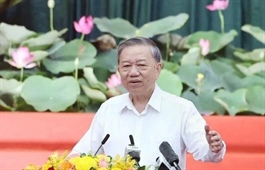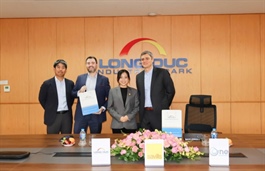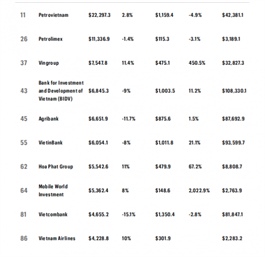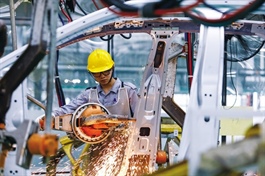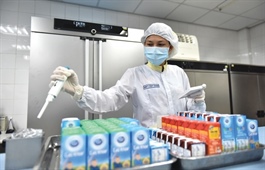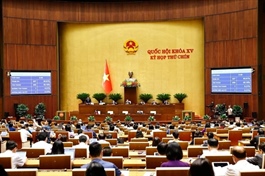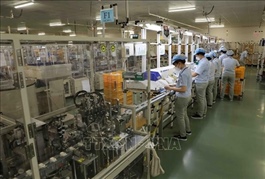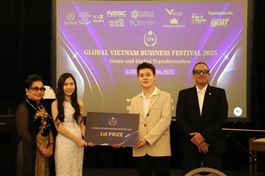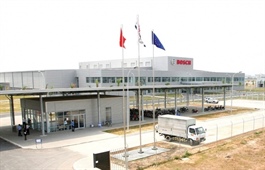Vietnamese enterprises urged to adopt tariff mitigation strategiess
Vietnamese enterprises urged to adopt tariff mitigation strategiess
Vietnamese businesses must proactively implement strategies to mitigate tariffs, diversify supply sources, and seek alternative suppliers in the face of volatile global trade policies.
At a conference titled "Logistics Solutions for Import-Export Enterprises Facing US Tariffs - Challenges and Opportunities", held on June 18 by the Ho Chi Minh City Investment and Trade Promotion Centre (ITPC), experts outlined the latest regulatory updates and compliance requirements under US customs and trade policies. They also shared solutions to support exporters navigating the shifting tariff landscape.
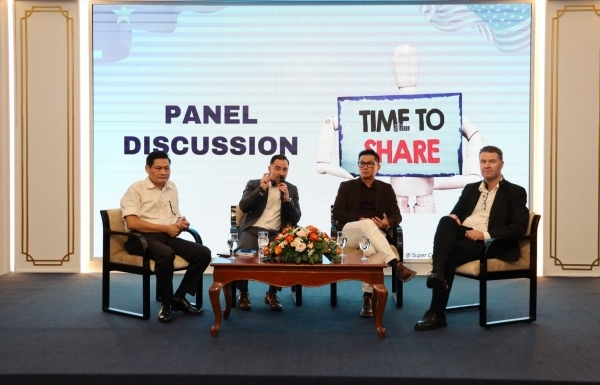
Experts at the conference |
Speaking at the event, ITPC’s deputy director Ho Thị Quyen emphasised that logistics plays a vital role in Vietnam’s economic development by enabling efficient goods transportation and supply chain management.
“Countervailing duties, although designed to balance trade, are significantly impacting global logistics systems, and Vietnam is no exception,” Quyen said.
At major US West Coast ports, particularly the bustling Port of Los Angeles, container throughput fell by 9 per cent in May compared to the same month last year.
Le Thi Thanh Minh, head of the Europe Department under the Ministry of Industry and Trade’s European-American Market Department, noted that shipping costs have surged dramatically since early this year.
Specifically, shipping rates to the US West Coast jumped from $1,850 to $2,950 per container, while rates to East Coast ports climbed from over $2,000 to nearly $5,000 per container.
Despite these challenges, Minh believes this reality can also serve as motivation for Vietnam to better prepare its logistics infrastructure and position itself as a viable alternative amid supply chain shifts from China to ASEAN.
On US market and tariff policy, Nunzio De Filippis, CEO of Cargotrans USA, remarked that American trade policy is transitioning from a free trade model to a "fair trade" approach.
In 2025, the US implemented a wave of new tariff measures, beginning with the announcement of a 10 per cent tariff under the International Emergency Economic Powers Act on February 1, affecting imports from China, Canada, and Mexico.
De Filippis noted that international importers have responded proactively to these rapid policy changes by implementing tariff mitigation strategies, diversifying their supply chains, and seeking alternative suppliers.
“This shift in US trade policy presents a major opportunity for countries like Vietnam. The US is increasingly seeking stable suppliers in Southeast Asia, and Vietnamese businesses are well-positioned to replace Chinese suppliers across a range of sectors,” De Filippis stated.
To take advantage of this opportunity, Vietnamese exporters must overcome three primary challenges, according to Nguyen Tran Khanh Hoang, CEO of Super Cargo Service Group.
“These are high logistics costs, documentation risks, and potential investigations into trade fraud, all while meeting stringent US logistics standards,” Hoang said.
Hoang identified high logistics costs as one of the most critical barriers. “These include not only shipping fees but also warehousing, customs clearance procedures at both ends, and numerous hidden expenses throughout the export process,” he added.
Another major concern lies in documentation errors and risks associated with trade fraud investigations.
Hoang emphasised that companies must be extremely cautious, as these issues often stem from outdated knowledge of US regulations, such as those enforced by the Federal Maritime Commission, and lessons drawn from previous enforcement actions.
One specific risk exporter must understand is when goods are shipped under delivered duty paid terms.
In such cases, the Vietnamese exporter becomes the “importer of record” in the US and is fully responsible for tariff classification, customs valuation, providing proof of origin, and paying all applicable duties.
De Filippis warned that businesses should not assume clearance equates to final approval.
“The US Customs and Border Protection can review and liquidate entries up to 314 days after filing, and audit shipments for up to five years, potentially resulting in retroactive duty collection,” he added.
A fundamental requirement is that goods must undergo “substantial transformation” in Vietnam. CBP does not consider mere assembly of Chinese components without reprogramming or quality testing or garments made from pre-cut fabric, as sufficient transformation. Instead, businesses are encouraged to pursue real value-added processing steps, he pointed out.
To meet these standards, companies should prioritise using raw or semifinished materials and enhance local shaping, assembly, finishing, and quality control operations, he added.
- 13:08 19/06/2025



